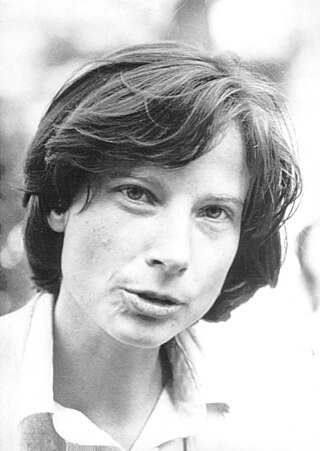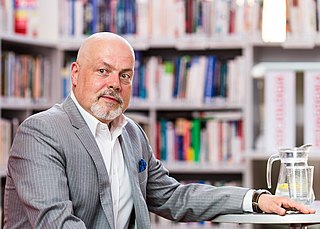Related Research Articles

During the later stages of World War II and the post-war period, Germans and Volksdeutsche fled and were expelled from various Eastern and Central European countries, including Czechoslovakia, and from the former German provinces of Lower and Upper Silesia, East Prussia, and the eastern parts of Brandenburg (Neumark) and Pomerania (Hinterpommern), which were annexed by Poland and the Soviet Union.

Georg Gottfried Julius Dehio, was a Baltic German art historian.

Marcel Reich-Ranicki was a Polish-born German literary critic and member of the informal literary association Gruppe 47. He was regarded as one of the most influential contemporary literary critics in the field of German literature and has often been called Literaturpapst in Germany.

Gustav Freytag was a German novelist and playwright.

Karl Dedecius was a Polish-born German translator of Polish and Russian literature.

The flight and expulsion of Germans from Poland was the largest of a series of flights and expulsions of Germans in Europe during and after World War II. The German population fled or was expelled from all regions which are currently within the territorial boundaries of Poland: including the former eastern territories of Germany annexed by Poland after the war and parts of pre-war Poland; despite acquiring territories from Germany, the Poles themselves were also expelled from the former eastern territories of Poland annexed by the Soviet Union. West German government figures of those evacuated, migrated, or expelled by 1950 totaled 8,030,000. Research by the West German government put the figure of Germans emigrating from Poland from 1951 to 1982 at 894,000; they are also considered expellees under German Federal Expellee Law.

Karl-Markus Gauß is an Austrian contemporary writer, essayist and editor. He lives in Salzburg.

Claudia Schmölders, also Claudia Henn-Schmölders is a German cultural scholar, author, and translator.
The German Book Prize is awarded annually, in October, by the German Publishers and Booksellers Association to the best new German language novel of the year. The books, published in Germany, Austria and Switzerland, are nominated by their publishers, who can propose up to two books from their current or planned publication list. The books should be in shops before the short-list is announced in September of the award year. The winner is awarded €25,000, while the five shortlisted authors receive €2,500 each. It is presented annually during the Frankfurt Book Fair.

Marek Krajewski is a Polish crime writer and linguist.
The Leipzig Book Fair Prize is a literary award assigned annually during the Leipzig Book Fair to outstanding newly released literary works in the categories "Fiction", "Non-fiction" and "Translation". The Leipzig Book Fair Prize has been awarded since the Deutscher Bücherpreis was ceased in 2005, and is one of the most important literary awards in Germany. The winner in each category is awarded €15,000.
Heinz Gottfried Nawratil was a German lawyer, legal author and human rights activist.

Terézia Mora is a German Hungarian writer, screenwriter and translator.
Ingo Haar is a German historian. He received his Master of Arts from the University of Hamburg in 1993 and his PhD in History in 1998 at the Martin Luther University of Halle-Wittenberg. His doctoral dissertation was on "Historians in Nazi Germany: the German history and the`'Ethnic struggle' in the `East'".
Carl Adolf Georg Lauterbach was a German explorer and botanist.
The Georg Dehio Cultural Prize is a biennial award, funded by the German government's Office of the Federal Commissioner for Culture and Media, and administered by the German Cultural Forum for Eastern Europe.

Ulrike Draesner is a German author. She was awarded the 2016 Nicolas Born Prize.
Carl Eduard Philipp Wackernagel was a German schoolteacher and hymnologist. He was an older brother of philologist Wilhelm Wackernagel.

Thomas Urban is a German journalist and author of historical books.
References
- ↑ "Georg-Dehio-Buchpreis".
- ↑ Österreichischer Rundfunk, April 11, 2012
- ↑ "German Federal Commissioner for Culture and Media". Archived from the original on 2014-07-25. Retrieved 2014-05-16.
- ↑ German Cultural Forum for Eastern Europe
- ↑ Literaturport description
- ↑ Kulturpreise.de
- ↑ "Georg Dehio-Buchpreis: Preisträger 2018 stehen fest" . Retrieved 2018-09-10.
- ↑ "Verleihung des Georg Dehio-Buchpreises 2016: Impressionen" . Retrieved 2018-09-10.
- ↑ "Georg Dehio-Buchpreis 2014" . Retrieved 2018-09-10.
- ↑ Focus, April 26, 2012
- ↑ Culture.pl Archived 2014-07-09 at archive.today
- ↑ Deutsche Welle, October 4, 2008
- ↑ Tageszeitung, May 13, 2006
- ↑ Deutschland Radio (Berlin), May 25, 2004